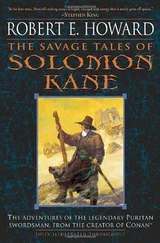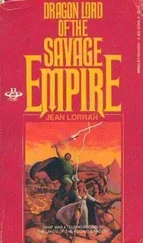Ahern, Jerry - The Savage Horde
Здесь есть возможность читать онлайн «Ahern, Jerry - The Savage Horde» весь текст электронной книги совершенно бесплатно (целиком полную версию без сокращений). В некоторых случаях можно слушать аудио, скачать через торрент в формате fb2 и присутствует краткое содержание. Жанр: Старинная литература, на английском языке. Описание произведения, (предисловие) а так же отзывы посетителей доступны на портале библиотеки ЛибКат.
- Название:The Savage Horde
- Автор:
- Жанр:
- Год:неизвестен
- ISBN:нет данных
- Рейтинг книги:4 / 5. Голосов: 1
-
Избранное:Добавить в избранное
- Отзывы:
-
Ваша оценка:
- 80
- 1
- 2
- 3
- 4
- 5
The Savage Horde: краткое содержание, описание и аннотация
Предлагаем к чтению аннотацию, описание, краткое содержание или предисловие (зависит от того, что написал сам автор книги «The Savage Horde»). Если вы не нашли необходимую информацию о книге — напишите в комментариях, мы постараемся отыскать её.
The Savage Horde — читать онлайн бесплатно полную книгу (весь текст) целиком
Ниже представлен текст книги, разбитый по страницам. Система сохранения места последней прочитанной страницы, позволяет с удобством читать онлайн бесплатно книгу «The Savage Horde», без необходимости каждый раз заново искать на чём Вы остановились. Поставьте закладку, и сможете в любой момент перейти на страницу, на которой закончили чтение.
Интервал:
Закладка:
Gundersen nodded, then, "He thought of that too—maybe a death wish because they figured they were dying anyway. He autopsied one of the men while the battle was going on out there—aside from bizarre diet—nuts, berries, things like that, the man was perfectly normal. Physically," Gundersen added.
Cole, his voice odd, detached sounding, interjected, "We've still gotta get to those warheads—the hell with those wildmen or whatever they are—"
"Barbarism," Rourke interrupted. "Civilized men sunk to barbarism—so short a time. Some religion—has to be. They kept shouting, 'Kill the heathens.' Kept shouting it over and over. Half civilized, half savage—that business with the crosses, then burning people. My guess there's some leader who organized these people—survivors of the Night of The War, maybe a religious cult before then."
"There were many crazy religious cults in California—warrior religions and things like that," Natalia murmured. "Before the Night of The War—in KGB, there were plans to infiltrate some of the cults, perhaps use them to start civil unrest—Vladmir—"
"Vladmir?" Gundersen asked.
"My husband—he is dead. He—he, ahh—he believed that if the people of the United States could be made to fear their own homes, the safety of their own beds, they would be that much easier to conquer. Some agents were sent out—perhaps—" She let the statement hang.
Rourke looked at her, saying nothing, then knitting his fingers on the table, the cigar clamped in the left corner of his mouth. "It appears we have to go around or through these wildmen. Have to send a small, well-armed force to penetrate to that airbase. If there is any surviving complement there, we can use their help. Like as not they're under siege by these wildmen, too. If there was a neutron strike, there could have been some personnel in hardened sites or using hardened equipment who survived. Hopefully for our sake, Armand Teal was one of them. He was a good man. For an Air Force officer, a good ground tactician as well. We could use his help if we ever hope to get those warheads out." Rourke looked at Gundersen, saying, "I've got equipment to clean—the salt water. After that, I gotta sleep. I'm no good to anyone the way I feel now. If you can find another inlet further up the coast, then just surface to let us out, then dive again, maybe go to another inlet, attract a lot of attention, maybe we can slip through, past the bulk of the wildmen."
"Wildmen—Jesus," Gundersen nodded. "It's hard to imagine—"
"People are afraid," Natalia told him. "Afraid, and fear does a great deal.
During the Second World War, people were easily reduced to depravities—informing on their friends and families, consuming human excrement to survive—''
Rourke interrupted her. "What she's saying is perfectly valid. Take the basic kernel of a fanatically violent religious cult—the cult offers a family, an ordered society, some element of protection. After the war—if you didn 't join the cult, you'd be an enemy of the cult—a heathen, like they shouted at us. Either join or die. And apparently to lose in battle and still live is the ultimate sin, or close to it."
"But such savagery/' Gundersen said, his voice incredulous.
"The vikings—at least some of them—I read once they'd set their beards on fire as they ran into battle to show their ferocity, their obsession with taking enemy life was greater than preserving their own. These people are like that.
Wtldmen is more than apt—savage."
Gundersen held his face in his hands for a moment, then looked up, at Rourke, then at Natalia. "Have all of us done this—with our technology? Have we—ohh,"
and he sighed.
"I think it was Einstein," Natalia began.
"It was," Rourke nodded slowly, his voice little more than a whisper.
"He said that he didn't know what the weapons of World War Three would be when he was asked once. But he said the weapons of World War Four would be stones and clubs."
Rourke looked at her, felt the momentary increase of pressure of her hand on his thigh. "Maybe," he said, his eyes closing, his head resting in his hands, his voice a whisper, "the dark times—or whatever they'll be called—maybe they've already begun."
Chapter 49
Sarah Rourke opened her eyes—she looked at the wristwatch she had taken from one of the dead brigands after the attack on the Mulliner farm. It was a Tudor, the band hopelessly big for her, but the construction simitar to a Rolex like her husband wore—made by the same company before the Night of The War as she recalled. It read a little after ten in the morning.
"Ohh—I was tired," she told herself, sitting up, banging her head on the tent pole above her.
She remembered—where she was—the refugee camp, the resistance commander David Balfry—how she had fallen asleep dreaming of her husband.
Pete Critchfield, the local commander who had, with Bill Mulliner, taken herself and the children to the camp had said there were showers.
She sat up on the blankets, searching through her kit— she found a clean T-shirt, a bra that didn't look too dirty and clean underpants. Mary Mulliner still slept—Sarah realized the trek would had to have been harder on the older woman. She decided to find the shower. She had no towel, but perhaps she could find one—or just be wet—to be clean was more important.
She gathered up the things as she stepped into her tennis shoes, stood up and stepped through the tent flap, finally rising to her full height. She noticed, suddenly, that without being aware of it, she had grabbed up the Trapper .
Bill Mulliner had given her and replaced it in the belt holster on her hip.
"I'm going crazy," she told herself. She started across the camp, hearing children laughing, the sounds of play, from the far left end of the camp. She decided to find her children first—her own two and Millie Jenkins as well. She started through the camp.
More of the wounded, the habitually injured—they walked the impacted dirt of what had perhaps once been a front yard and was now a street. Their eyes—she could see no hope in them.
But the sound of the children laughing—it was nearer. At the furthest extent of the camp itself but still inside the security perimeter was a corral, white painted, though as she cut the distance, running her free right hand through her greasy-feeling hair, she could see the fence paint chipped and cracking.
She could already see Annie, and with her Millie Jenkins and more than two dozen other children, all seated on the ground, some older girls—teenagers, talking with them, the children laughing.
She stopped, not wanting to distract her daughter—the children were beginning to sing a song. Like many more things since the Night of The War, it held religious overtones—a hymn, but a cheerful sounding one, how Jesus loved little children.
She didn't see Michael, and as she started searching the crowd of singing children more closely, she noticed his total absence.
"I'm over here," she heard a voice say, the voice shockingly deep, but recognizable.
She turned, looking at her son—he was growing too fast, she thought absently, watching him sitting on the running board of a Volkswagen beetle, the car dirty, dented, but apparently still serviceable.
"What's the matter, Michael?"
He looked up at her, his brown eyes not smiling, the corners of his still childish mouth downturned, the leanness of his face more pronounced than she ever remembered
having seen it. He had killed, he had saved her life and Annie's life—he had been a man.
"That's stupid—playing. Stupid."
"It's not stupid to play," she began, walking over to him. "Scoot over," and she nudged against him gently, sitting beside him on the running board of the VW.
Читать дальшеИнтервал:
Закладка:
Похожие книги на «The Savage Horde»
Представляем Вашему вниманию похожие книги на «The Savage Horde» списком для выбора. Мы отобрали схожую по названию и смыслу литературу в надежде предоставить читателям больше вариантов отыскать новые, интересные, ещё непрочитанные произведения.
Обсуждение, отзывы о книге «The Savage Horde» и просто собственные мнения читателей. Оставьте ваши комментарии, напишите, что Вы думаете о произведении, его смысле или главных героях. Укажите что конкретно понравилось, а что нет, и почему Вы так считаете.







